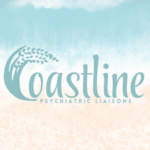
What Is the Difference Between a Psychiatrist, Therapist and Psychologist?
May 1, 2025
Finding a Psychiatrist Near Myrtle Beach: What to Look For
May 8, 2025Many people use the words “anxiety” and “panic attack” to describe the same experience, but they are not the same. While both involve intense emotional and physical reactions, they have key differences. Knowing the difference between anxiety vs. panic attacks can help you better understand what you are feeling and find the right kind of support.
Anxiety vs. Panic Attacks: What Makes Them Different?
Anxiety and panic attacks are both real, uncomfortable and overwhelming. However, they show up in different ways and often have different triggers.
Anxiety builds gradually. It often comes with ongoing worry, nervousness or tension about something in the future. This could be a deadline, an exam or an upcoming event. Anxiety might cause restlessness, muscle tension, trouble sleeping and a racing mind. The feelings can be strong, but they usually stay connected to a real-life situation.
A panic attack happens suddenly, often without warning or an obvious reason. It comes on fast and brings intense physical symptoms like a racing heart, shortness of breath, chest pain, dizziness or feeling like you are losing control. Panic attacks often peak within minutes and leave you feeling drained or confused afterward. Some people experience them just once, while others have them more regularly.
The biggest difference is how the symptoms begin and how quickly they rise. Anxiety feels like a slow build. A panic attack feels like a wave that hits all at once. Both are valid and difficult, but they need different types of care and coping tools.
What Do They Have in Common?
Anxiety and panic attacks both activate your body’s stress response. Your brain senses a threat and tells your body to prepare for danger, even when you are not actually in danger. That is why both can cause rapid heartbeat, sweating, shaking or a sense of fear.
They also both respond well to treatment. With the right tools and support, you can learn to understand these experiences and take steps to feel more in control.
When to Seek Help
If anxiety or panic attacks are starting to interfere with your daily life, relationships or ability to function, it is time to reach out. You do not have to wait until things get worse. Support can help you feel steadier, clearer and more confident in managing what you are facing.
Finding Relief That Lasts
Understanding the difference between anxiety vs. panic attacks is a powerful first step. It helps you recognize what you are feeling and gives you language to ask for what you need. Whether you are managing everyday anxiety or navigating sudden panic attacks, you deserve support that sees the whole picture.
At Coastline Psychiatric Liaisons, we help people find relief through compassionate, personalized care. If you are ready to talk to someone, we are here to listen. Reach out today to schedule your first appointment and take the next step toward feeling better.
FAQs
1. How can I tell if I’m having an anxiety attack or a panic attack?
Anxiety attacks usually build gradually in response to something stressful, like an upcoming test or work pressure. You might feel restless, have trouble sleeping, experience tension in your body or notice your thoughts racing. These symptoms often last longer and feel tied to something specific.
Panic attacks happen suddenly, sometimes without any warning. They bring intense physical symptoms like a pounding heart, shortness of breath, chest discomfort, dizziness or a sense that something terrible is happening. Panic attacks peak quickly and tend to pass within minutes, but they can feel overwhelming while they last. Knowing the difference helps you better understand what you’re experiencing and which tools might help calm things down.
2. Can anxiety turn into a panic attack?
Yes, anxiety can sometimes build to the point where it triggers a panic attack. If your body stays in a constant state of worry without a chance to reset, it might eventually feel like it can’t hold any more, leading to a more intense response. That is when a panic attack can occur. The good news is that early awareness and calming tools can often keep anxiety from reaching that level. Breathing exercises, taking breaks and talking to someone you trust can help prevent things from spiraling.
3. Are panic attacks more dangerous than anxiety attacks?
Panic attacks feel more intense because of their physical symptoms and the speed at which they hit, but they are not more dangerous than anxiety attacks. Both experiences are real and deserve attention and care. Panic attacks can feel like something is seriously wrong with your body, but they are not life-threatening.


